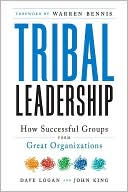Category Books
- Fiction Books & Literature
- Graphic Novels
- Horror
- Mystery & Crime
- Poetry
- Romance Books
- Science Fiction & Fantasy
- Thrillers
- Westerns
- Ages 0-2
- Ages 3-5
- Ages 6-8
- Ages 9-12
- Teens
- Children's Books
- African Americans
- Antiques & Collectibles
- Art, Architecture & Photography
- Bibles & Bible Studies
- Biography
- Business Books
- Christianity
- Computer Books & Technology Books
- Cookbooks, Food & Wine
- Crafts & Hobbies Books
- Education & Teaching
- Engineering
- Entertainment
- Foreign Languages
- Game Books
- Gay & Lesbian
- Health Books, Diet & Fitness Books
- History
- Home & Garden
- Humor Books
- Judaism & Judaica
- Law
- Medical Books
- New Age & Spirituality
- Nonfiction
- Parenting & Family
- Pets
- Philosophy
- Political Books & Current Events Books
- Psychology & Psychotherapy
- Reference
- Religion Books
- Science & Nature
- Self Improvement
- Sex & Relationships
- Social Sciences
- Sports & Adventure
- Study Guides & Test Prep
- Travel
- True Crime
- Weddings
- Women's Studies
Tribal Leadership: Leveraging Natural Groups to Build a Thriving Organization »

Authors: Dave Logan, John King, Halee Fischer-wright, Halee Fischer-Wright
ISBN-13: 9780061251306, ISBN-10: 0061251305
Format: Hardcover
Publisher: HarperCollins Publishers
Date Published: January 2008
Edition: (Non-applicable)
Author Biography: Dave Logan
Dave Logan is cofounder and senior partner of the management consulting firm CultureSync, a consulting firm specializing in strategy, cultural design, and high performance. A professor at USC's Marshall School of Business, he is a former associate dean, and holds a PhD in organizational communication from USC. A frequent keynote speaker, he has worked with groups as diverse as Fortune 500 companies, universities, non profits, and high tech start-ups. He and his wife, Harte, live in Los Angeles.
Book Synopsis
It's a fact of life: birds flock, fish school, people "tribe."
Every company, indeed every organization, is a tribe, or if it's large enough, a network of tribes-groups of 20 to 150 people in which everyone knows everyone else, or at least knows of everyone else. Tribes are more powerful than teams, companies, or even CEOs, and yet their key leverage points have not been mapped-until now. In Tribal Leadership, Dave Logan, John King, and Halee Fischer-Wright show leaders how to assess their organization's tribal culture on a scale from one to five and then implement specific tools to elevate the stage to the next. The result is unprecedented success.
In a rigorous eight-year study of approximately 24,000 people in over two dozen corporations, Logan, King, and Fischer-Wright refine and define a common theme: the success of a company depends on its tribes, the strength of its tribes is determined by the tribal culture, and a thriving corporate culture can be established by an effective tribal leader. Tribal Leadership will show leaders how to employ their companies' tribes to maximize productivity and profit: the authors' research, backed up with interviews ranging from Brian France (CEO of NASCAR) to "Dilbert" creator Scott Adams, shows that over three quarters of the organizations they've studied have tribal cultures that are merely adequate, no better than the third of five tribal stages.
Leaders, managers, and organizations that fail to understand, motivate, and grow their tribes will find it impossible to succeed in an increasingly fragmented world of business. The often counterintuitive findings of Tribal Leadership will help leaders at today's majorcorporations, small businesses, and nonprofits learn how to take the people in their organization from adequate to outstanding, to discover the secrets that have led the highest-level tribes (like the team at Apple that designed the iPod) to remarkable heights, and to find new ways to succeed where others have failed.
Publishers Weekly
The authors, management consultants and partners of JeffersonLarsonSmith, offer a fascinating look at corporate tribes-groups of 20-150 people within a company that come together on their own rather than through management decisions-and how executives can use tribes to maximize productivity and profit. Drawing upon research from a 10-year study of more than 24,000 people in two dozen organizations, they argue that tribes have the greatest influence in determining how much and what quality work gets done. The authors identify the five stages of employee tribal development-"Life sucks," "My life sucks," "I'm great and you're not," "We're great" and "Life is great"-and offer advice on how to manage these groups. They also share insights from the health care, philanthropic, engineering, biotechnology and other industries and include key points lists for each chapter. Particularly useful is the Tribal Leader's Cheat Sheet, which helps determine and assess success indicators. Well written and enlightening, this book will be of interest to business professionals at all levels. (Feb.)
Copyright 2007 Reed Business InformationTable of Contents
Subjects
 Management & Leadership
Management & Leadership  Leadership
LeadershipBusiness Books
 Management & Leadership
Management & Leadership  Organizational Behavior
Organizational Behavior
